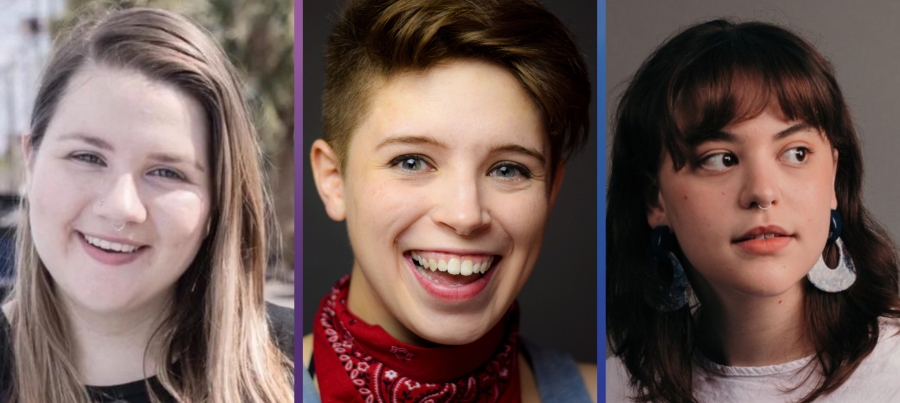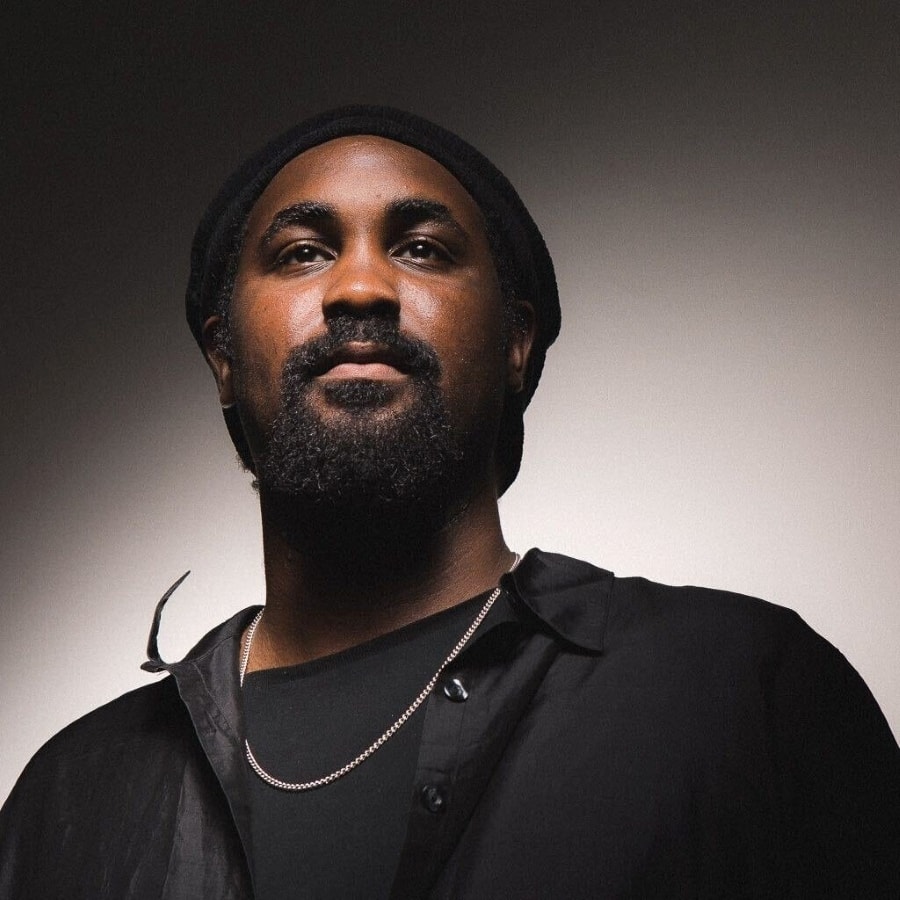In late April, Haven Theatre, a cherished company in Chicago’s theatre scene for a decade, announced that it would become the latest in the ever-lengthening list of theatre companies permanently closing their doors. The end of Haven also means that this was the final year of their Director’s Haven, an impactful initiative that for the last seven years offered space for budding local directors to work with a mentor and direct a short production at Wicker Park’s Den Theatre, Haven’s home since 2016.
Created by former artistic director Josh Sobel in 2017, the Director’s Haven initiative offered emerging directors hands-on experience without the financial burden often associated with traditional graduate programs. Sobel said in a recent interview that he created the program as a way to reckon with his own frustrations of what it means to be an early-career director.
“You have to get hired to make work, but you have to make work to get hired,” Sobel said. “How does one actually be an early-career director when they’re just starting out? Especially if you don’t have the resources or you don’t want to be a producer.”
Over the years, the project has seen rising directors like Lexi Saunders, JD Caudill, and Arti Ishak pass through its ranks. Ishak, who was part of 2023’s showcase and directed SAME SECTS! by Paul Michael Thomson, immediately went on to direct their debut, Hatefuck, by Rehana Lew Mirza, for First Floor Theater.
“I actually worked with one of the designers that I met through Director’s Haven, so I felt really fortunate that it was a way to forge relationships,” Ishak said. “Chicago is truly missing out on a playground for young directors, a space to cultivate new talents, and a program that took risks.”
This year’s cohort, selected from a pool of around 80 applicants, included Leanna Oliveira, Gaby Labotka, and Faith Hart. Oliveira, who is originally from South Florida, found out about this opportunity online before she moved to the city to pursue directing. As her Director’s Haven project, she directed The Siren Song of Stephen Jay Gould by Benjamin Bettenbender, about two strangers who meet when one of them falls out of the sky in an attempt to end his own life.

“As a person who’s new to the area, [the end of Director’s Haven] makes me sad, because there aren’t other programs where you get to do this, and I’m excited to have been chosen this year, because my plan would have been to reapply next year,” said Oliveira. “I was just talking to the lighting designer, Julie, about how we’re going to work together in the future, because we got along really well. The biggest draw to directing for me is that collaboration and creative problem-solving with a team of people who are better at things that I’m not great at.”
For Director’s Haven, directors would pitch plays and the initiative would provide access to rehearsal space as well as a design team, budgetary support, and promotional resources to bring their visions to life. This year’s rehearsals started in early February, with performances attended by locals, industry figures, and fellow creatives running every night from March 27 to April 10.

“The opportunity that I might be most grateful for is the chance to steward a five-person design team,” said Hart, who directed Krapp’s Last Tape by Samuel Beckett, about a dying writer who revisits a tape he recorded at age 39 and finds a vast chasm between the man he is and the man he was. “My plays in the past have tended to be me scrapping together garbage to make props, so it’s been cool to develop a vision and communicate that vision in an actionable way.”
Labotka directed Skyflint, by Cassandra Rose, a queer steampunk action-adventure about a woman with the innate ability to channel lightning who escapes her life on the ground by hopping onto an airship and into the unexplored skies above.
“[Rose] is one of my favorite people to make theatre with,” said Labotka, who had applied for the program three times before joining this year’s cohort. “She champions representation, and as a playwright, she really invites feedback. So this felt like we could all be personally invested with the script and heard throughout the process.”
Labotka noted that, due to conflicts or personal reasons, they had to recast a few people in her show while in rehearsals, a situation she’d never experienced before. Labotka added that the tight timeline also required some creative time management.
“Whether it’s the Goodman or the Oregon Shakespeare Festival, these sorts of challenges arise at every level of production,” Labotka said, “and this is perhaps a slightly lower-stakes scenario to practice and learn how to respond to those challenges.”

Haven’s current artistic director, Ian Damont Martin, acknowledged the financial realities that made it difficult to keep the theatre going; its annual budget ranged between $200,000 and $300,000. “A ticket model or individual donor model just isn’t sustainable,” he said. Carol Cohen, Haven’s co-founder, board president, and co-owner of the Den Theatre, added that funding the theatre’s operations “was getting very expensive. It wasn’t fun anymore because people weren’t coming to see our work,” said Cohen. “We’d sell maybe 30 to 40 percent of the tickets. We would spend $5,000 to have a gala that raised $6,000.”

Sobel, who still serves as vice president of Haven’s board, said that Haven has historically been a company looking to take risks and make theatre “outside of how it’s typically done,” but of course not every experiment lands and takes root.
The spirit of experimentation, Sobel said via email, “has been in everything. From what we make (non-Aristotelian rock-concert ‘musicals,’ horror dramas, apocalyptic commentaries on humanity through the lens of making theatre) to how we make it (radically re-envisioned inclusive casting practices for Brecht, reconceived approaches to budgeting, the Director’s Haven program itself).”
In addition to the institution’s own financial pressures, Haven’s artists were also faced with the ever-growing need for more sustainable ways of earning a living. Martin said they will be refocusing their artistic practice by launching a creative studio, Hoodbutch Studios, and continuing their work as the executive director of inclusion and belonging at the Art Institute of Chicago. Cohen added that executive director Angela Salinas, who we were unable to reach for this article, is also making a career move.
“Over the past six years, I have worked with incredible artists that have not only inspired me to grow as a leader, but challenged me to reflect on who I am, my core values, and most importantly, taught me how I can create change in my community,” Salinas said in a statement. “We strived to bring you art that sometimes carried hard truths, brought you laughter, or just inspired you to become a drag queen. No matter what the impact, we hope that Haven will always hold a place in your heart. Leading a company like Haven has been a dream come true and far beyond what I ever felt I could accomplish. But that’s what it’s all about, right? Theatre is built on hopes and dreams.”
As the final season draws to a close, Director’s Haven leaves behind a legacy built on its core values of prioritizing people, inclusion, accountability, and mentorship. For its final bow, Haven is returning to the show that started it all for them back in 2013, Hedwig & The Angry Inch. The company will revisit their inaugural production this summer, July 10-Aug. 4, at the Den, directed by Director’s Haven alum JD Caudill.
“Haven’s been 10 years old, and we’ll end on 10 years, and we’re ending with a play we started with,” Martin said. “That’s a really cool full-circle moment.”
Boutayna Chokrane (she/her) is a Chicago-based journalist, covering music, the arts, and all things culture.


